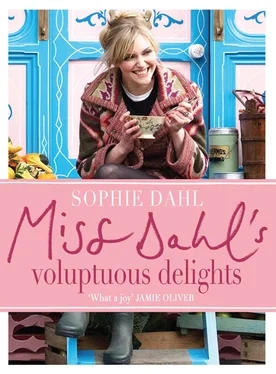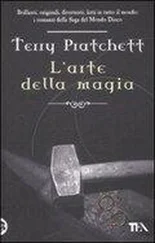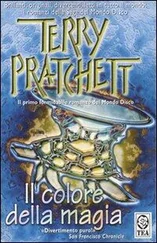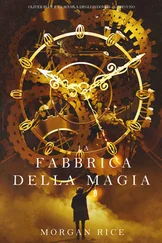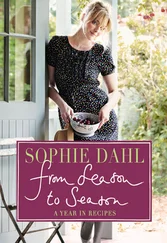Social activities in England often revolve around the tradition of the nursery tea. I was deeply keen on tea, but as an only child I was not at all keen on having to share either my toys or my food.
‘You must learn to share. It’s a very nasty habit, selfishness,’ Maureen, my Scottish nanny said, her grey eyes fixed on me in a penetrating way.
‘Urgh. It’s so unfair!’ I would cry, scandalized by the injustice of having to watch impotent as other children, often strangers, were allowed to torture my dolls and eat all the salt and vinegar crisps for the mere reason that ‘they can do what they want—they are your guests.’
But I didn’t invite them! You did. I don’t want them messing up my dressing-up box and smearing greasy fingers on my best one-eyed doll, or asking to see her ‘front bottom’. I don’t want friends who say ‘front bottom’. I want to play Tarzan and Jane with Dominic from next door, who has brown eyes and kissed me by the compost heap. I don’t want to be the ugly stepsister in the game, I want to be Cinderella! No, I’m not tired. I might go to my room now and listen to Storyteller. They can stay in the playroom on their own.
When I was six, my friend Ka-Ming came for tea. There was macaroni and cheese, and for pudding, yoghurt. Maureen announced in her buttery burr that there were only two yoghurts, chocolate and strawberry, on which Ka-Ming, as the guest, got first dibs. Agonizing as Ka-Ming slowly weighed up the boons of each flavour, I excused myself and ran to the playroom, where the wishing stone my grandmother Gee-Gee had found on the beach sat on the bookshelf. I had one wish left.
‘Please, wishing stone and God, let her not pick the chocolate yoghurt, because that is the one I want.’ I cradled the stone, hot in my palm.
I walked into the kitchen to find Ka-Ming already eating the strawberry yoghurt with enthusiasm. The chocolate Mr Men yoghurt sat sublime on my plate. This turn of fate cemented my belief that if you wish for something hard enough, as long as it doesn’t already belong to somebody else you tend to get it.

At ten, to my great dismay, I was sent to boarding school. I recalled the permanent midnight feasts in Enid Blyton books, and reckoned that this was the sole pro in an otherwise dismal situation. Yet on arrival I realized that the halcyon midnight feasts were a myth. The reality was fried bread swimming its own stagnant grease, powdered mashed potatoes, bright pink gammon, gristly stew, grey Scotch eggs and collapsed beetroot, which I was made to eat in staggering quantity.
The consolation prize when home from boarding school was picking a Last Supper. Last Suppers were cooked the final night of the school holidays by my mother at her bottle-green Aga; a balm to the palate before another term of unspeakably horrible food. I chose these suppers as if I was dining at the captain’s table on the Titanic —beef consommé, roast chicken wrapped in bacon with tarragon creeping wistfully over its breast, potatoes golden and gloriously crispy on the outside and flaking softly from within, and peas buttered and sweet, haloed by mint from the garden. Puddings were towering, trembling creations: lemon mousse, scented with summer; chocolate soufflés, bitter and proud.
We were grumpily ambivalent about the food at school; the English as a rule aren’t a race of protesters, particularly the ten-year-olds. School food was meant to be bad, that was its role before the advent of Jamie Oliver and his luscious organic, sustainable school dinners. There was the merest whiff of protest during the salmonella crisis in the late eighties, when some rebel chalked ‘Eggwina salmonella curry’ over the curried eggs listing on the menu board and got a detention for their efforts, but that was about as racy as it ever got.
I left boarding school at twelve, and we moved from starchy London to svelte New York. It was in this year that food first became something other than what you ate of necessity, boredom or greediness. I noticed that food contained its own brand of inherent power, certainly where adults were concerned. Women in New York talked about food and how to avoid it all the time. Their teenage progeny religiously counted fat grams, while the mothers went to see a tanned diet guru named Dr R, who provided neat white pills and ziplock bags for snacks of mini pretzels, asking them out for fastidious dinners where he monitored their calorie consumption. If they were lucky they might get a slimline kiss at the end of the evening, the bow of his leonine head offering dietary benediction. It was a savvy way of doing business; Dr R had a repeat clientele, as all the divorced mums were in love with him, staying five pounds over their ideal weight in order to prolong both that coveted dinner and his undivided attention.
I loved New York, loved its fast glittery shininess and sophistication, which was the polar opposite of the dowdy certainty of English boarding school. At my new school, my ineptitude with maths was greeted with such bolstering and enthusiasm that, for a brief blissful period, I was almost good at it.
In our biology class we read about the perils of anorexia. We learnt the signs to be wary of: secrecy, layers of clothing, blue extremities, pretending to have eaten earlier, cessation of menstruation, hair on the body, compulsive exercise.
My taste buds awoke from their slumber with the tenacity of Rip Van Winkle
We were eagle-eyed mini detectives, each classmate a suspect. After these sessions we didn’t see the irony in spending the whole of lunchtime talking about how many calories were in a plain bagel and who looked fat in her leotard. Awareness of eating disorders seemed American-specific; my friends in England were baffled by it.
‘Isn’t Anna Rexia a person?’ My best friend asked me on a crackling transatlantic line.
‘Duh.’ I said.
There was a pause.
‘That’s really awful. Why would anyone not want to eat when they were hungry?’
Cafeteria food in America was even worse than in England; gloopy electric-orange macaroni cheese, iron-tasting chocolate milk and ‘pudding’, a gelatinous mess meant to be related to vanilla in some way. I stuck to wholewheat bagels with cream cheese and tomatoes, because that was low-fat, and the then wisdom told us that low-fat was the way forward. On a Friday morning we were allowed to bring breakfast to school and eat it in our first class as a treat. I bought these breakfasts from the deli on the corner and did consider them treats; a fried egg sandwiched in a croissant and milky coffee (made with skimmed milk, of course) seemed deliciously adult and forbidden.
I shaved my legs for the first time at thirteen without permission and left ribbons of skin in the bath with my shaky novice hand. My mother came in and shook her head and said sadly, ‘Now you’ve started there’s no going back. That’ll be waxing for the rest of your life, my darling.’
I wondered how I might look to other people in a swimsuit, as during the summer there were pool parties where there were boys, and, perhaps even more scary, the narrow eyes of the other girls. It seemed much more complicated territory than my English boarding school, where everyone was blue from cold, clad in the same troll-like, unflattering regulation green. These golden girls wore tiny bikinis and had manicures and pedicures.
In the absence of hearty boarding school stodge and endless picking, my body had willowed. My legs were long; my skirts were short. I was a wisp with a wasp waist and pertly-chested to boot. I joined the chattering lunchtime throng, reading food labels as if they were Dostoevsky, pretending to understand, while at home I tore up steps on the Stairmaster as Jason Priestly twinkled at me from the television.
Читать дальше
